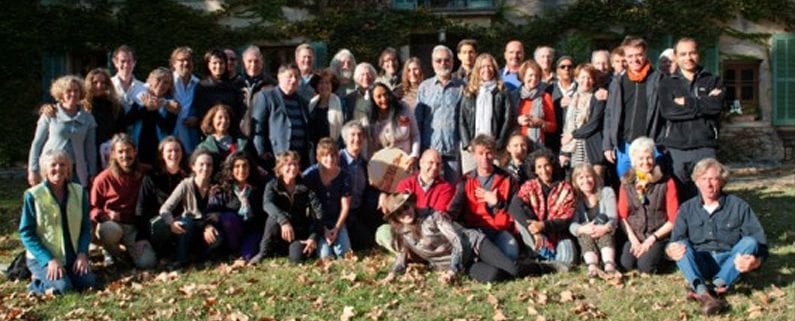[et_pb_section fb_built=”1″ _builder_version=”4.16″ global_colors_info=”{}”][et_pb_row _builder_version=”4.16″ background_size=”initial” background_position=”top_left” background_repeat=”repeat” global_colors_info=”{}”][et_pb_column type=”4_4″ _builder_version=”4.16″ custom_padding=”|||” global_colors_info=”{}” custom_padding__hover=”|||”][et_pb_text _builder_version=”4.16″ background_size=”initial” background_position=”top_left” background_repeat=”repeat” global_colors_info=”{}”]Michel Chauvet intro Some very basic truths are almost completely lost to urban, technocentric modern people. One such truth, quoting Barbara Kingsolver: “Eating is an agricultural act”. For our next speaker, investigating how both have evolved has been a passion which has made him a world-class expert in the evolution of food crops and agricultural biodiversity. Trained as an agronomist and ethnolinguist, Michel Chauvet’s research commenced with studies of the names of food crops in European languages. Working at the French centre for overseas trade, he advised French exporters of fruits and vegetables and thus gained an overview of the modern food industry. Recruited by INRA, France’s National Institute for Agricultural Research, Michel started by working at the “Bureau of Genetic Resources”, as a project manager promoting conservation and use of genetic resources, and gaining expertise in plant breeding and genetics. He participated for over ten years in the negotiations of what would become the Convention on Biological Diversity and the International Treaty on Plant Genetic Resources as well as an international inventory of useful plants. His first book was “Biodiversity, Global Challenge”. Michel served as scientific adviser of the “Agropolis Museum,” a museum of food and agriculture worldwide, organising exhibitions and conferences and managed the French office of PROTA (Plant Resources of Tropical Africa). Currently he is a researcher in a botanical laboratory at INRA Montpellier and is preparing for publication his “Inventory of food plants in Europe.” He just launched a participatory website about useful plants, called Pl@ntUse. Margaret Meade commented: “It is easier to change a man’s religion than to change his diet.” But perhaps changes in diet are like the battles over scientific paradigms, the older generation doesn’t accept the new paradigms or foods, but they die and a new generation arises for whom it is obvious. Michel’s research has made him an expert in the biodiversity of food crops of the Mediterranean and their historic evolution. He counsels it’s a grave mistake to think that the crops we now have were those of antiquity – and the mixing cultural bowl of the Mediterranean has served as a excellent arena to track the introduction of new food crops and the resulting changes in the Mediterranean diet. Please welcome Michel Chauvet as he tracks “The Evolution of Food Crops in the Mediterranean”.
[/et_pb_text][/et_pb_column][/et_pb_row][/et_pb_section]
“The Evolution of Food Crops in the Mediterranean”.

